In the Studio: Hunter/Game
The Milanese production duo invite us into their analog-heavy lair.
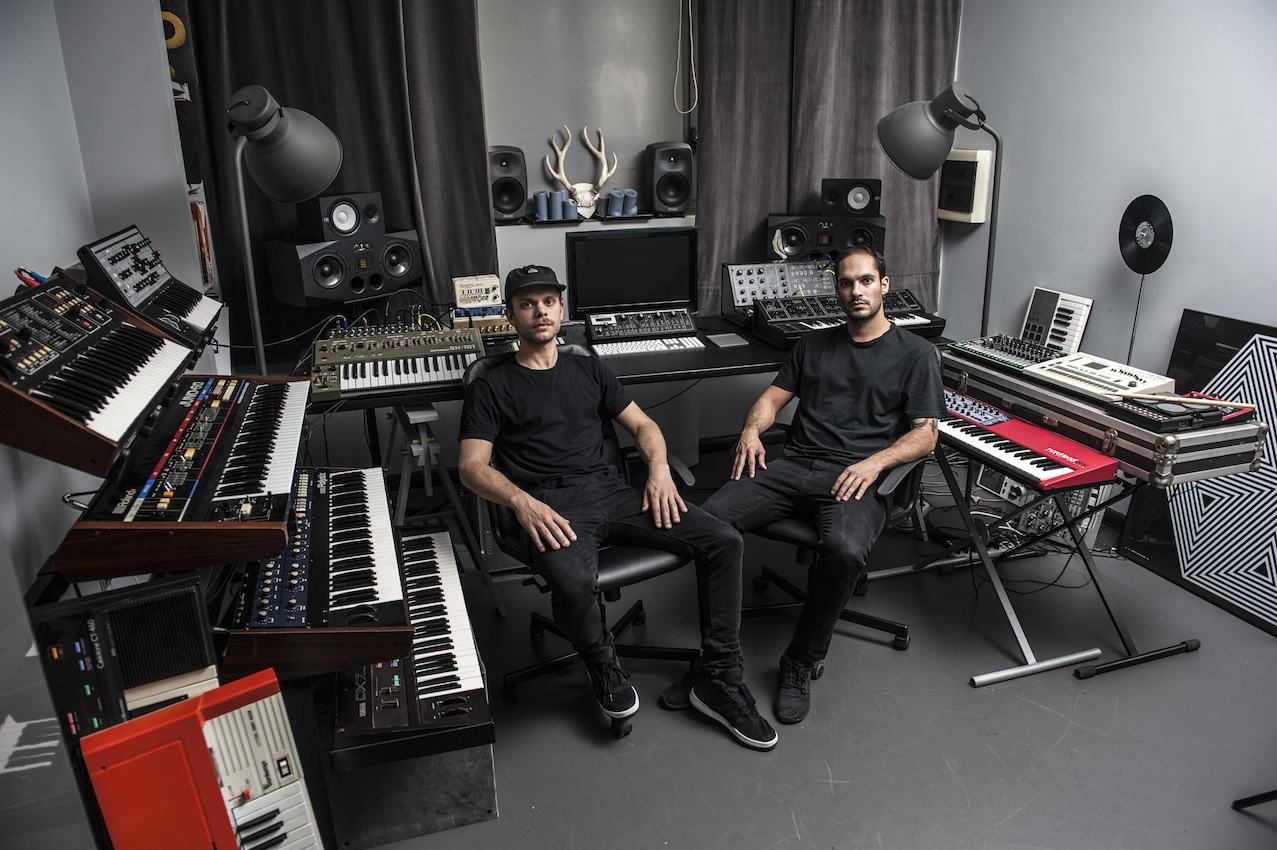
In the Studio: Hunter/Game
The Milanese production duo invite us into their analog-heavy lair.

Hunter/Game is the latest project of Martino Bertola and Emmanuele Nicosia, two Milanese friends and established producers in their own right who are quickly developing a reputation for their beautiful blend of deep, dark, and enchanting techno beats. Their musical origins lie in their infamous Just This events, a much-sought-after party series hosted in secret locations around Milan that started in 2010 and quickly became a compulsory stop for the leading acts in electronic music, including the likes of Mano Le Tough, Seth Troxler and Tale of Us.
The duo’s first release came in 2011 with “Touch Me,” a blissful slow-burner on Diynamic‘s 053 EP that quickly climbed the deep-house charts and brought the pair acclaim via its hypnotic vocals and seductive bassline. Since then, Bertola and Nicosia have gradually refined their sound into a sultry blend of ambient house and techno that has seen them performing at some of the world’s leading clubs and releasing on some of the most in-demand labels in electronic music, including Jamie Jones‘s Hot Creations, Dixon and Âme’s Innervisions, and the Cologne-based Kompakt.
As befits their growing stature, Hunter/Game have recently started their own vinyl label entitled Just This, and settled into a beautiful studio in the centre of Milan. And now there’s Genesis, their latest EP on Just This; many more releases are scheduled before the year is out.
Though continuing to evolve, Hunter/Game’s sound today is a thing of great beauty, and their method of production is similarly dramatic. Nestled in the loft of a tall office building brimming with creatives, their studio has become the focal point of the duo’s development—and as many of their contemporaries become seduced by the cold precision of digital production, Bertola and Nicosia remain convinced that an almost entirely analogue studio set-up best compliments their musical development and self-expression.
How long have you been making music, and how has the way you produce changed over the years?
Nicosia:We have been friends since 2005 but Hunter/Game was a project that we started four years ago. Before that we had been making music individually. We came out with our first track which was a good success and so decided to continue our collaboration together. Over time our sound has evolved and we now use lots more analogue stuff than at the start. At the beginning we didn’t have the money to afford a proper studio so we started with a VST of the most popular synths. Then when we started to gig, and had some pocket money to build our studio. We started to buy the real versions and we really understood the difference between the dynamics of sound from an analogue synth to a VST. It completely changed our style, and our music and now we are working fully analog.
Bertola: We use the software just as sequencers or just to mix down the tracks. That’s it. We’ll record audio files and we’ll normally sample those through Ableton. We don’t use MIDI controllers because we’re focused on analog.
Nicosia: Buying new gear has also really inspired us to produce new stuff so it is not just that our techniques for production have developed over time, but the equipment has opened up new opportunities and inspired us to try new things with our music. Every new machine gives us new possibilities and more inspiration, for sure.
So your production process is clearly far more organic than digital. Talk me through the equipment.
Nicosia: We have too much. We’ll have to give you a list!
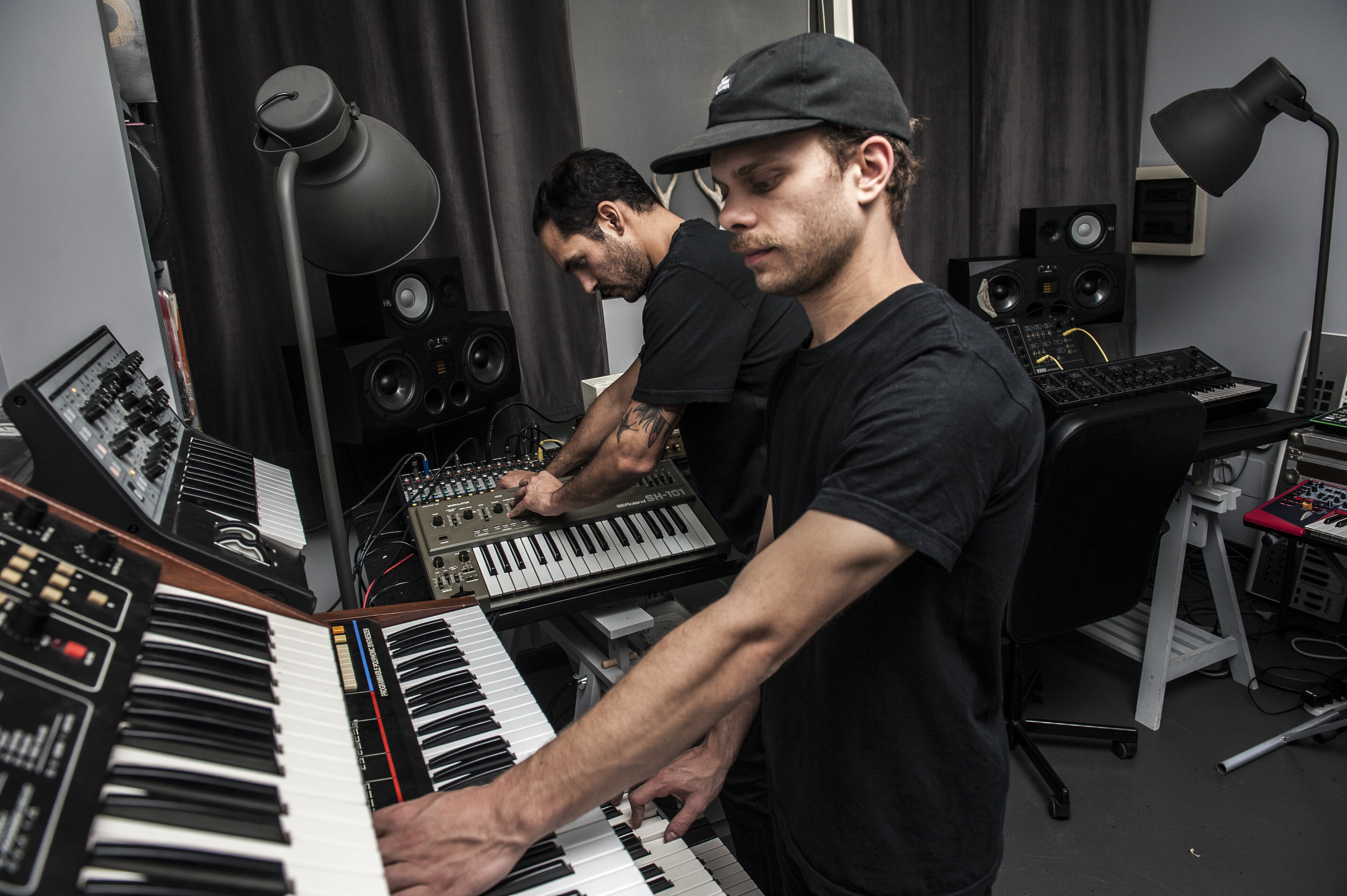
And what software do you use?
Bertola: We use both Ableton and Logic. Sometimes Ableton is more useful for sequences and samples, but we always use Logic for the mix down.
Would you say that the unpredictability of all your analogue gear has led to some surprises?
Bertola: Yes—this is a really special thing. Every time you use the equipment you find new, strange sounds.
Nicosia: Weird sounds will come out all the time, but it’s cool and we will use them. For example, one time we were using a pad but the audio part crashed, and it created a totally distorted but incredible sound. We were not able to stop Ableton or the recording so it was recording like ten minutes of this fucked up distortion, but it was totally incredible.
Bertola: Also, analog delay will give you weird patterns and sounds.
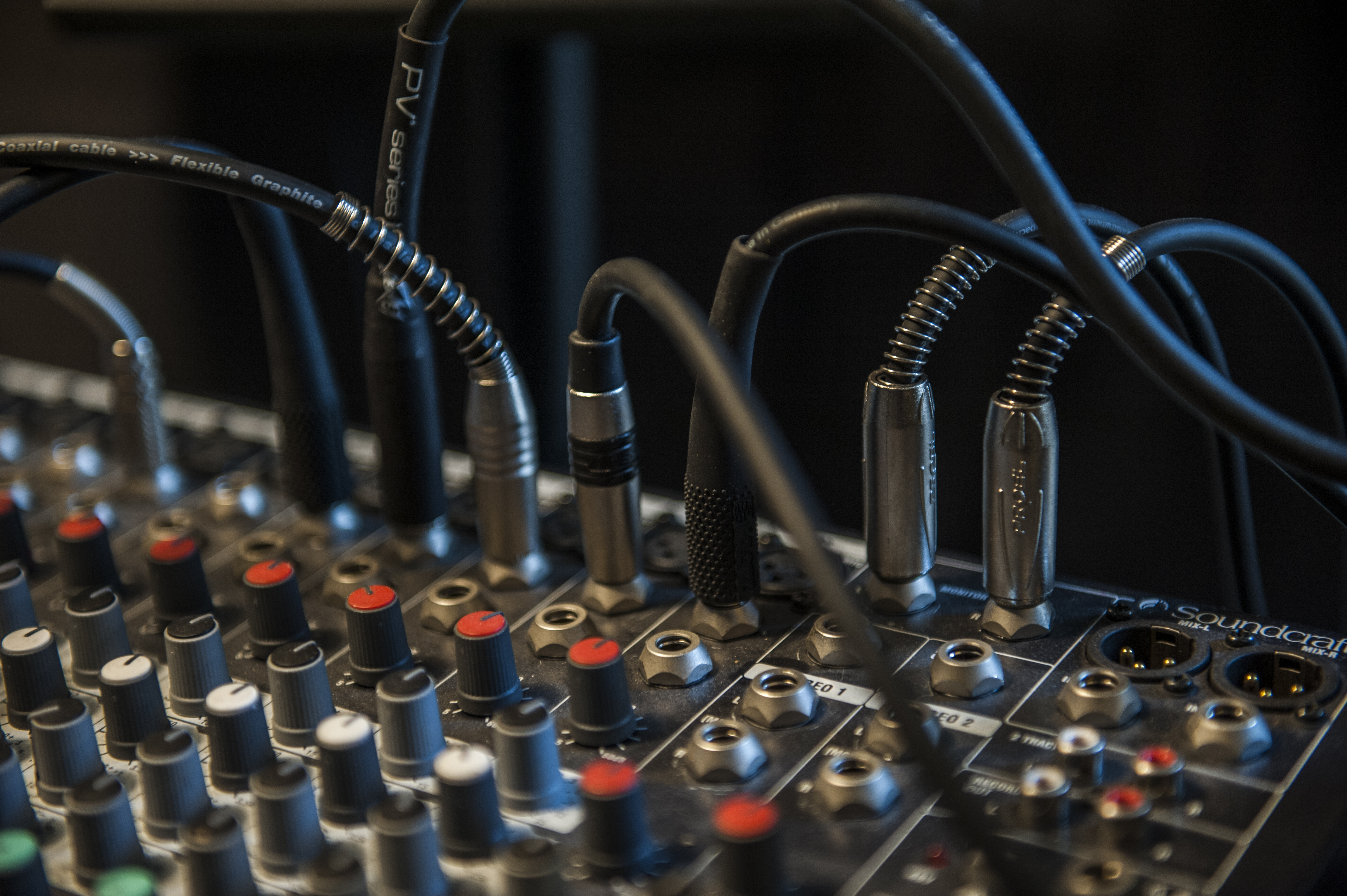
So going back to the start, why do you choose to base yourself in Milan?
Nicosia: We’ve always been based in Milan. I think you this romantic techno is a real product of this city and it’s quite an interesting scene here, so we haven’t moved to Berlin or other cities like almost everyone else. We feel very inspired by what is going on in Milan so we want to stay here.
Bertola: The underground scene is really growing here in Milan and that helps our creativity. It is important for us to work with our friends and build a collective here, so we have our studio here in the loft, right next door to the office for our Just This label and parties. The building is actually owned by Pisetzky, our label partner and best friend.
When did you move into this studio, and why?
Nicosia: We moved into this studio just over two years ago. It’s important for us to have a place where we can meet each other, where we can speak, connect and share our inspirations. We also manage two clubs and we normally bring every guest DJ to the studio which helps and inspires us. It is a lot of energy and creativity merging in one space and that opens our minds, pushing us to create.
Where were you producing beforehand?
Nicosia: Before we were producing at home—we had a couple of synths like the Moog, but our production was a lot more digitally-based. But now we have built a complete analogue studio. We cut off a pre-amplifier from a Marshall guitar amplifier and we pass many things through that which makes the sound really dirty. We also have a tape recorder which helps us to create a dirty background sound.
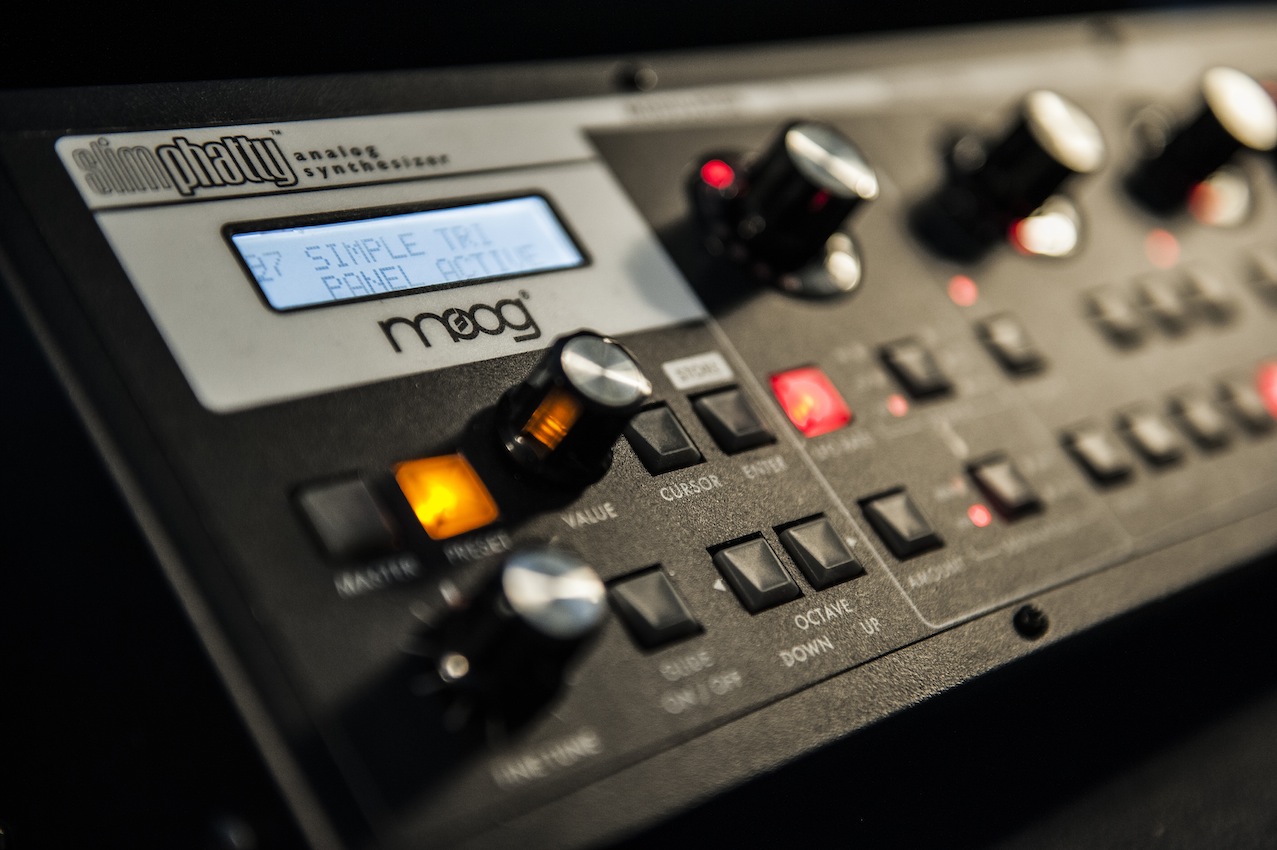
Do you feel that having a studio separate from your own home affects the creative process of your music?
Bertola: Not really, because we still produce at home a lot. We both have Moog at home so we can do it there too. If you have a good idea at your house then you have to capture it!
Nicosia: The studio is more about joining a collective; the studio is the place of our crew and our label. It has now given our us space for our analogue production, but it is important that we can also produce at home too because sometimes you will be dreaming and you will wake up with an idea – and you have to write it down.
So, talk me briefly through your production process.
Bartola: First of all, we try to create a sequence, or the melody, with the analog synth, normally using our new PolySix. Then we create the drums and everything else afterwards – but we always focus on the melody first. We record the instruments then we cut and work Ableton or Logic to create the loops.
Nicosia: The first step is trigger the synths with some drums machines, like the SH-11 or the PolySix, in order to try and build the melody. From there the track will gradually develop.
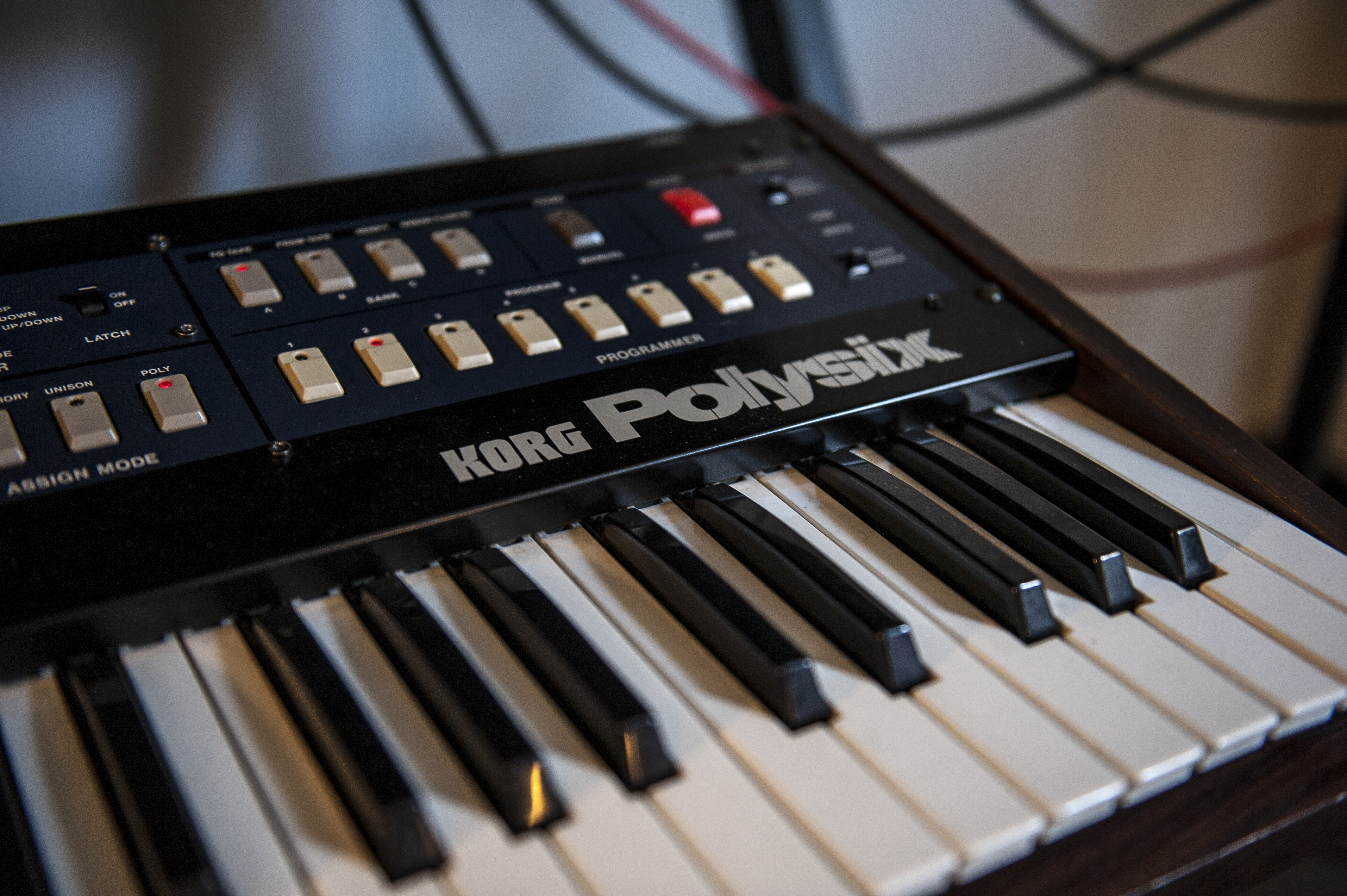
Is there a formula for a track, or do you just go to the studio and play around, hoping for inspiration?
Bertola Both. Sometimes we just play, but sometimes we have a very clear idea of what we want to produce. For the important EPs, we always have the idea beforehand and then we go and produce it.
Nicosia: For us, I think it is more of a process. We spend a lot of days in the studio where we just experiment, without producing an EP or a track. We just play around and we just learn how to use all the equipment. Then when we do have to work on an EP or a track, we will have some clear idea in mind and we just focus on it. Because we have been experimenting a lot before, we have lots of new skills that we can then use to produce a new EP or track.
Bertola: Very often we will learn a new technique and we will then use it in a new EP. Every time that we buy a new synth, we have something new to learn and understand. We will try every kind of possibility with that gear and we will often use that new sequence or sound in our new music.
Do you try and keep a clear divide between production inside the studio and normal life outside of it, or does the production process go around the clock?
Nicosia: Definitely, we always think about music! Most of the time I will be in bed and before falling asleep I will have an idea in mind and I will record it in my iPhone, just through vocals. And then the morning after we will go to the studio with this idea fresh in my mind.
Bertola: The process is definitely 24-hour hour, because the night is our most creative time. Every night we will listen to the track we are working on before we go to sleep to give us a clear mind for the next day in the studio, so I can then think the next day of what I want to change in the studio.
Nicosia: Sometimes I will listen to other music before I go to bed too. The night time is when your mind is completely free because listening to music can inspire you. When your mind is relaxed, you can spot things in your music that you can’t spot when your mind is focused on other things and this is the most creative part of the day. The day after is a new day and then you can work on these thoughts.
So how much time do you spend in the studio? Do you approach it like any other regular nine-to-five job?
Bertola: No – it’s not like a nine-to-five. Our production starts from the first moment we wake up and sometimes we will stay all night in the studio. It just depends on our creativity that particular day.
Nicosia: Sometimes we will spend the whole day and night in the studio just playing around, without even producing anything for an EP or new track —but in the end all that time will result in a positive ending when we produce something new. If you spend time in the studio just experimenting then when you do try to produce a track it will come more easily and more naturally.
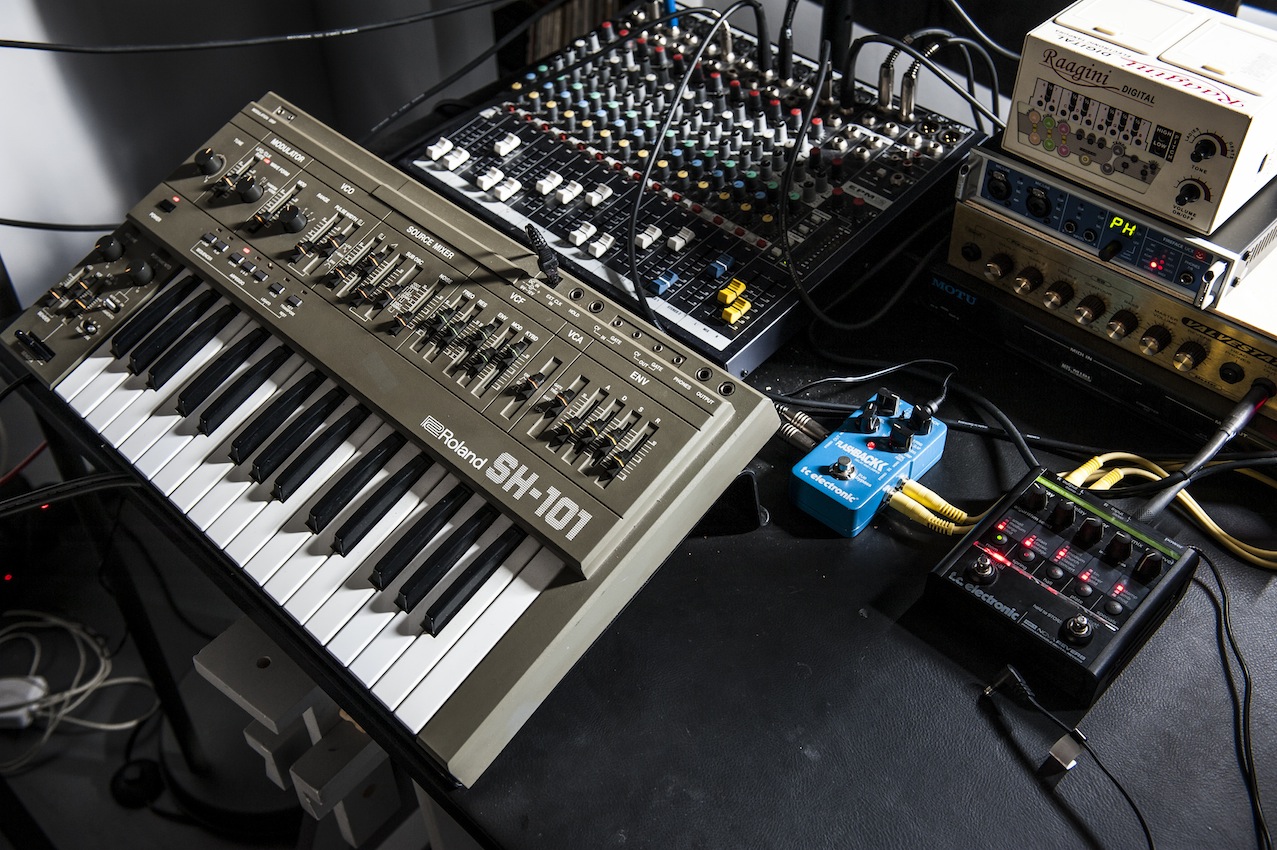
You can’t be recording all day and night in the studio. Tell me about a normal day when you’re there.
Nicosia: Yep, that’s right. We also spend a lot of time in the studio listening to music, chatting and just looking for inspiration. But when we do have a creative idea or a vision we will become very focused and will work really hard to produce the sound we want.
What do you do when you get a production block?
Bertola: In these cases we will have to spend time outside of the studio!
Nicosia: If we are stuck on a production, there is an easy way to get out of that. It’s called “Command; Shift; Cancel.” And marijuana. So I guess just time and pot!
Has your growing profile influenced how you feel when you’re in the studio—do you feel more pressure?
Nicosia: Not really. To be honest, we have just decided to do what we like, and the studio has helped to evolve and improve our sound. Thanks to the analog approach, we have been releasing on a lot of strong labels. I think it is a natural process because when you are free to express yourself without boundaries and restrictions, it becomes a lot easier.
So let’s chat about the Genesis EP. Did you guys make one track at a time, or were there several in the works simultaneously?
Bertola: We did that EP in three days—we gave one day to each track. We used an SH-101 and a Roland 707, then we used the Moog with Ableton. The drum we did with an analog delay. All three tracks we did in the same style and with the same gear.
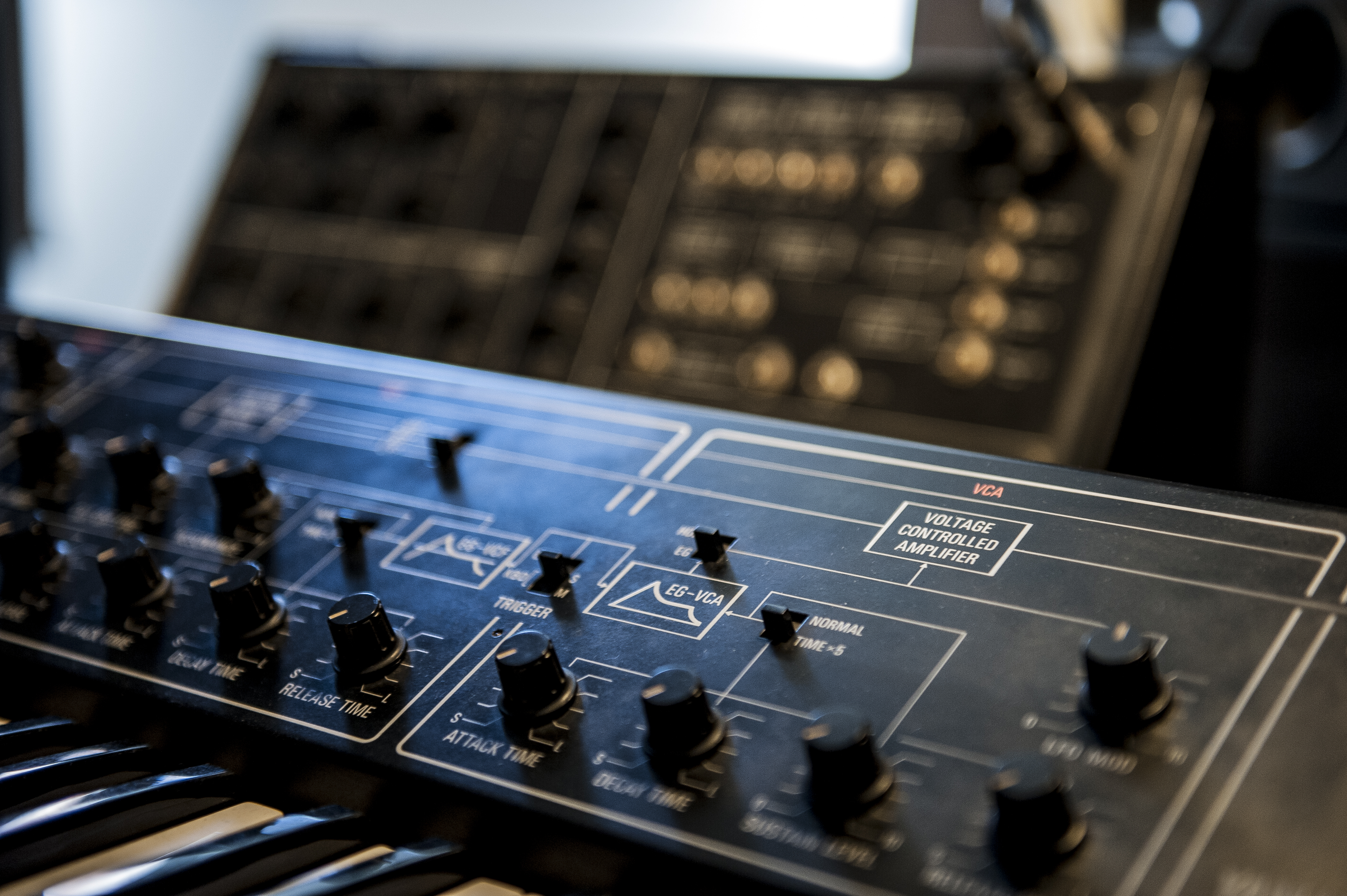
One day seems like a very short space of time to produce a track. Is this always the case?
Bertola: Not every track takes a day – but the creative part of the track, the melody and the synth, can be done in a day. We will record, and then maybe the days or the weeks after we will just clean and build the structure of the track.
Nicosia: We are really focused in the studio. I know lots of producers who will take months to close a track but when we come up with an idea and are very fast.
You guys have been working together for years at this point. Would you say that you both now have set roles in the studio?
Nicosia: It depends each day. One of us can have a good idea on the synth or a good melody in mind, but we always try to be flexible. We have known each other for many years so we are in the same state of mine and we have a connection.
Looking forward, what’s next for you? Is there any gear or musical equipment that you’re lusting after?
Bertola: It is hard to say, but we eventually want to start using a modular synth—but this is a completely different world.
Nicosia: We also want a Vermona drum machine!
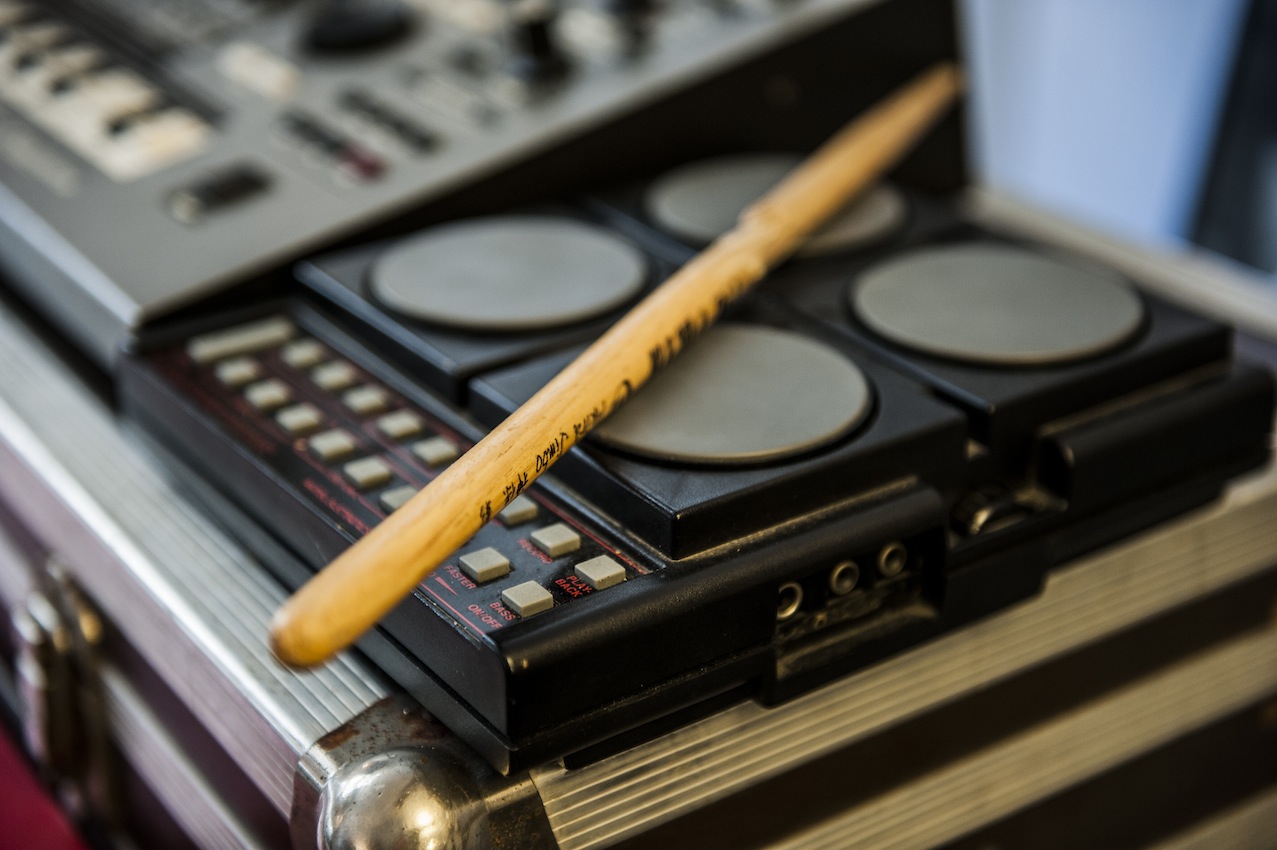
How do you know when your songs are done? Do you show them to anyone else before you release them?
Nicosia: I think there is a stream of melodic techno coming our of Milan, and we are closely connected with the other artists who have come from here. We will share our music with them and they will share their music with us, but we also know that we are doing our own thing and we need to focus on that.
Bertola: We know inside that it is good—if it is. But obviously we will share with our friends and we will listen to it together in the studio a lot before we send it out. We really believe in our music and like to keep things quite private because it is important to release only when it is the right time.
Do you ever have trouble “letting them go?“
Nicosia: No, not really. Once it is closed, it is closed. We don’t normally change a track after one month. If it is good, we know it is good. We make a track in one day because we are inspired by something, but the next week we might lose this inspiration. This is the best way to do it.
Bertola: When a track is finished, the track is finished. Of course, we will sometimes change something into the mixing, or the percussion—but these are only the smaller details.

